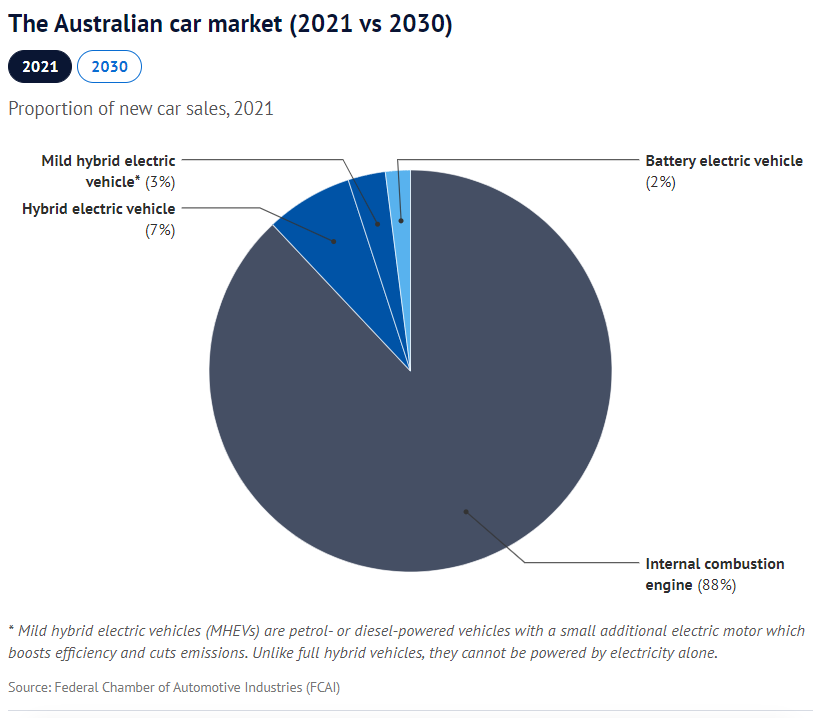Tesla chair Robyn Denholm says Australia should revive its auto industry by making batteries and electric vehicles to meet soaring global demand and help speed up the transition from petrol and diesel cars.
Denholm said Tesla and others needed more batteries as soon as possible to support the shift to electric vehicles and renewable power projects. The demand gives Australia a chance to build a new industry on its supply of raw materials, she added.
The Australian tech executive, whose net worth is estimated to be $688 million from her position on the board of the world’s biggest electric vehicle company, said the shift to the new industry could be achieved without government incentives to subsidise manufacturing.
“Australia is in a unique position because we have the minerals here that other countries don’t have,” she told the National Press Club on Wednesday.
“The supply chains for the electric vehicle and the lithium-ion storage batteries that are key for renewable energy are being formed now. That’s why I think it’s a unique opportunity.
“I do think the private sector and government need to work together. I don’t think that incentives are required because most business people will see the exponential growth that’s going to happen over the next period of time in those minerals.
“And moving up the value chain is important for job creation but it’s also important in terms of the economics that can be yielded with that. And that’s why, from my perspective, the time to act on that is now.”
Born in Sydney and educated at Peakhurst High School, Denholm worked at Toyota before becoming a senior executive at several tech firms and joining Tesla founder Elon Musk on the company’s board in 2014. She replaced Musk as chair in 2018.
Asked whether Australian labour costs and distance from export markets would make it too costly to make batteries and cars in the country, Denholm said the Australian cost base could make advanced manufacturing competitive.
“Tesla is a prime example of that – we’re producing vehicles in California, which is one of the most expensive places on the planet, and shipping them all around the world,” she said.
“So, to me, the fact that we don’t currently have a car manufacturing industry in Australia is actually not a bad thing because we have the skills, and we can retool and get people into advanced manufacturing.”
Tesla sold 3397 cars in Australia last month, making it one of the top 10 suppliers, but customers are being told to wait until February or May for some models because of global supply problems.
The International Energy Agency said annual electric vehicle sales doubled from 2020 to 2021 but supplies of critical minerals including lithium, cobalt and nickel were holding back the sector.
“The greatest obstacles to continued strong EV [electric vehicle] sales are soaring prices for some critical minerals essential for battery manufacturing, as well as supply chain disruptions caused by Russia’s attack on Ukraine and by continued Covid-19 lockdowns in some parts of China,” the agency said in May.
Denholm is also the chair of the Technology Council of Australia and used her speech on Wednesday to call for more investment in skills and vocational education, a better-skilled migration system to attract global talent, and more encouragement of young Australians to embark on tech careers.
“I think the biggest thing is not to be afraid to take a risk, to back yourself in that,” she said when asked for her advice for younger Australians.
“[G]et all the advice that you can, but you have to make the decision. And when you make that decision, take the leap. And if it doesn’t work, then pick yourself up and dust yourself off and go for it again, or do something different,” she said.
“The reality is that you can’t have successful companies without some failures along the way. And innovation and technology is an absolute example of that – if you haven’t failed along the way, from a technology perspective, you’re actually not pushing the envelope hard enough.”
Extracted from The Sydney Morning Herald
